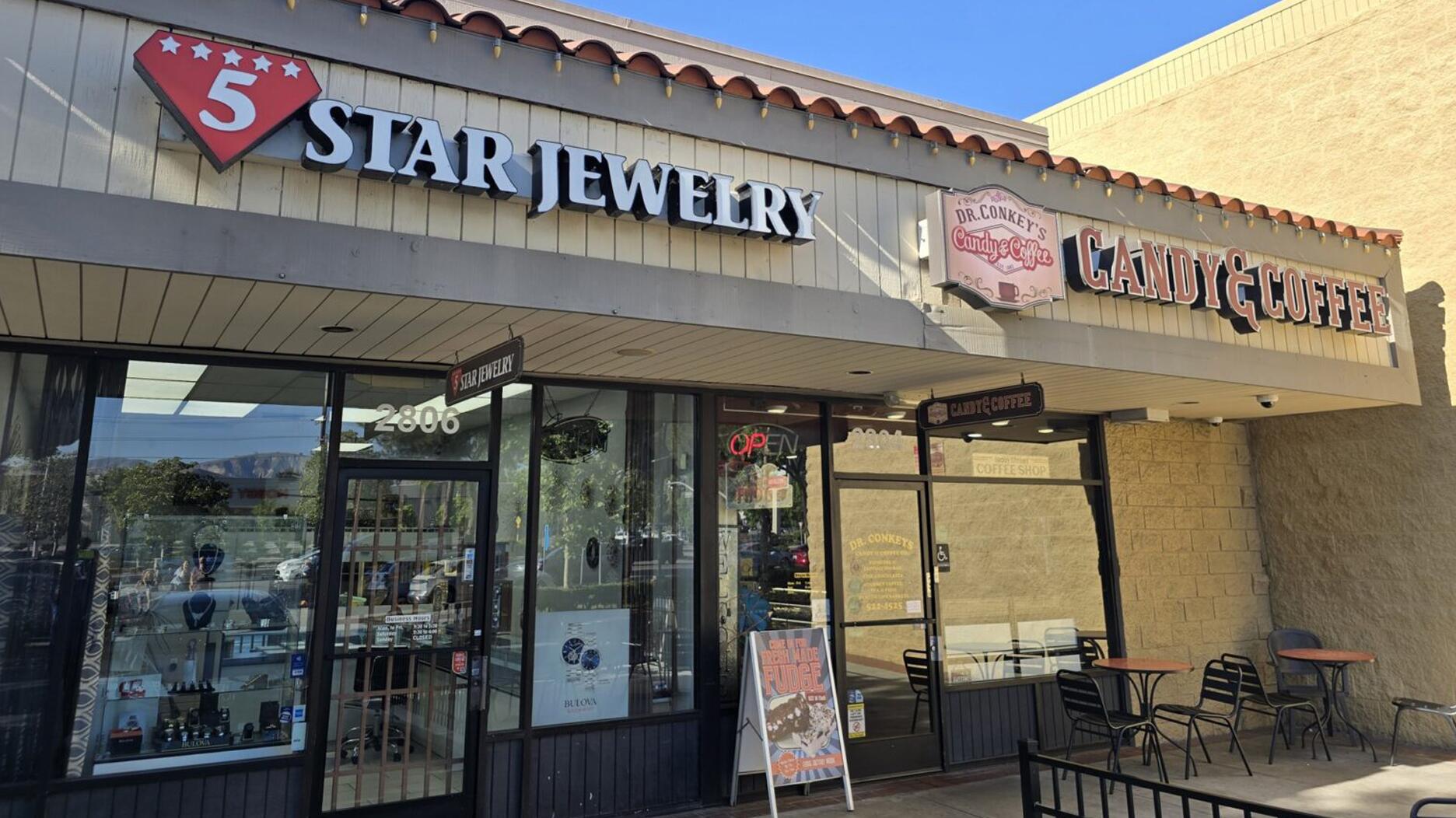Owners of the Ekapa Mine reportedly filed for liquidation about a week after a mudslide trapped five workers who have yet to be found.
Socially Engineered Shipping Scheme Hits Jewelry Industry
The perpetrators are mining information from company websites and Facebook in order to appear legitimate when placing fraudulent orders for high-end items, the JSA warns.
New York--A group of perpetrators are calling jewelry companies and faking their identities in order to trick them into shipping out high-end items, the Jewelers Security Alliance said in a special alert issued late last week.
JSA President John J. Kennedy said that while the exact number of perpetrators is unknown, the shipping scam is the work one of one fairly large singular group believed to be operating in the United States and targeting jewelry firms in the Northeast and Southeast.
He said that both suppliers and retailers are potential victims, with the perpetrators using what’s called social engineering to try to fool their victims into shipping out high-end merchandise.
Social engineering is defined as the use of deception to manipulate individuals to divulge confidential or personal information that may be used for fraudulent purposes. In May of this year, the FBI released a public service announcement about social engineering being used in business email compromise attacks, which cost businesses globally more than $5 billion between October 2013 and December 2016.
But, electronic contact is not part of the current scam that’s impacting jewelers and suppliers, Kennedy said.
Instead, the perpetrators are using the phone, calling suppliers pretending to be jewelers, or targeting multi-store retail chains posing as a store manager or employee of another branch.
They will contact the retail store or supplier with a great deal of knowledge about the company, like names of employees, shipping procedures, inventory in stock and SKU numbers.
While some of the information is obtained via phone calls made prior, much is mined from the internet, including the store’s website and the social media profiles of the business owner and his or her employees.
Then the perpetrator will ask for the supplier or store to ship certain high-end items--Kennedy said mainly large diamonds and high-value watches--overnight, with the goal of diverting the package en route by changing the shipping address to an address of their choice.
Sometimes when the fraud is being committed at a multi-store retail chain, the perpetrator will give an address that he or she claims belongs to a customer or salesperson and asks for the item to be sent there instead of the store.
Kennedy said while he has seen this type of fraud before, he has never seen it happening at the level it is right now.
There have been about a dozen attempts in the last two weeks
“We are putting this out now because we see it as rampant,” Kennedy said of the alert the JSA issued Friday.
He said that the amount of information now available on the internet is a “very large” contributor to criminals’ ability to socially engineer scams today.
And while Kennedy acknowledges that businesses need to be present on the internet to market themselves today, he says jewelers should carefully consider each piece of information that goes online.
“I feel jewelers are putting far too much information out online,” he said. “The more you put out there, the more you are at risk.”
The JSA has five additional recommendations for jewelers and suppliers to help them avoid becoming a victim of this shipping scheme.
1) Employees need to confirm to whom they are speaking. If someone is on the line whom the employee does not know, he or she should excuse themselves immediately and say they will have to call them back. Employees also can call back after the order or request is made to confirm that it’s legitimate.
Either way, the employee should not use the number given to them by the caller and, instead, call the actual phone number of the business, obtained via Google or elsewhere.
2) Be wary of calls that come from blocked or “unknown” numbers.
3) Alert employees that they should not be fooled into giving out inappropriate information to callers asking questions about personnel or procedures. The perpetrators want to find out as much as they can about a supplier or retailer in order to sound legitimate.
4) Strictly limit the procedures that allow for a change of address on shipments. For example, some firms have only one person who can authorize a change of address or have told the shipping company that all packages on which an address change is attempted should be returned to them.
5) Kennedy also recommended Monday that jewelers or suppliers never give out tracking numbers for packages they are shipping.
The Latest

A 10-year alliance has also begun to address the shortage of bench jewelers through scholarships, enhanced programs, and updated equipment.

The “Splendente” collection has evolved to feature hardstone letter pendants, including our Piece of the Week, the onyx “R.”

Every jeweler faces the same challenge: helping customers protect what they love. Here’s the solution designed for today’s jewelry business.

The jewelry collection belonged to “one of society's most glamorous and beautiful women of the mid-20th century,” said the auction house.


The update came as Anglo took its third write-down on the diamond miner and marketer, which lost more than $500 million in 2025.

Emmanuel Raheb discusses the rise of “GEO” and the importance of having well-written, quality content on your website.

With refreshed branding, a new website, updated courses, and a pathway for growth, DCA is dedicated to supporting retail staff development.

Catherine Aulick, a GIA graduate, received the ninth and final Gianmaria Buccellati Foundation Award for Excellence in Jewelry Design.

We asked a jewelry historian, designer, bridal director, and wedding expert what’s trending in engagement rings. Here’s what they said.

Experts from India weigh in the politics, policies, and market dynamics for diamantaires to monitor in 2026 and beyond.

Beth Gerstein discusses the vibe of the new store, what customers want when fine jewelry shopping today, and the details of “Date Night.”

Are arm bands poised to make a comeback? Has red-carpet jewelry become boring? Find out on the second episode of the “My Next Question” podcast.

The Swiss watchmaker is battling declining sales amid a rapid retail expansion, according to a Financial Times report.

The campaign celebrates Giustina Pavanello Rahaminov, the co-founder’s wife and matriarch of the family-owned brand, for her 88th birthday.

Rachel Bennett, a senior jeweler who has been with Borsheims since 2004, earned the award.

After the Supreme Court struck down the IEEPA tariffs, President Trump imposed a 10 percent tax on almost all imports via a different law.

The industry veteran, who was with The Edge Retail Academy for 14 years, joins her husband at the company he founded in 2022.

The vintage signed jewelry retailer chose Miami due to growing client demand in the city and the greater Latin American region.

Former Flight Club executive Jin Lee will bring his experience from the sneaker world to the pre-owned watch marketplace.

Sakamoto, who died in mid-January following a sudden illness, is remembered for his humility and his masterful, architectural designs.

The April event will feature a new VIP shopping day requiring a special ticket.

Bulgari chose the British-Albanian singer-songwriter for her powerful and enduring voice in contemporary culture, the jeweler said.

In a 6-3 ruling, the court said the president exceeded his authority when imposing sweeping tariffs under IEEPA.

Smith encourages salespeople to ask customers questions that elicit the release of oxytocin, the brain’s “feel-good” chemical.

JVC also announced the election of five new board members.

The brooch, our Piece of the Week, shows the chromatic spectrum through a holographic coating on rock crystal.





























